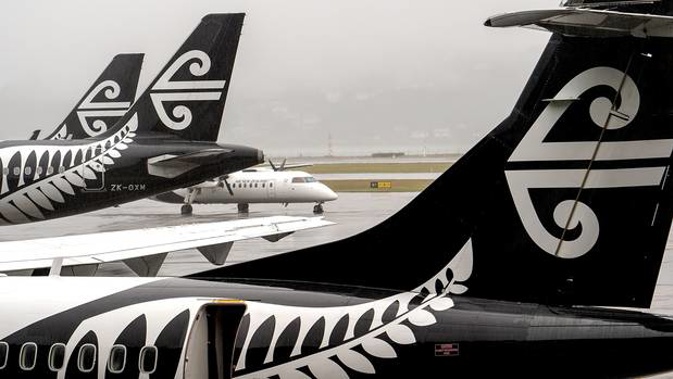
Air New Zealand has put off $750 million of new aircraft orders and embarked on a two-year cost-cutting programme designed to save more than $60m following a sharp fall in profit.
In a sweeping review, the airline says its growth will be more modest than previously thought but it is introducing a new route, to Seoul, from the end of the year and is adding frequency to recently started flights to Taipei and Chicago.
Cost savings will include ''process inefficiencies and automation''.
Air New Zealand is now planning for network growth of 3 per cent to 5 per cent, on average, over the next three years, revised from 5 per cent to 7 per cent, to reflect a slower demand growth environment.
As part of the plan to reduce capital spending in that period it will defer by one year the delivery of three A321NEO aircraft planned to operate on the domestic network.
It will postpone by two years the delivery of one A320NEO aircraft designated for trans-Tasman services.
And it will suspend for at least four years the delivery of two long-haul aircraft as part of a widebody fleet programme to replace the airline's eight-strong B777-200 fleet.
That will decrease the level of capital expenditure expected in the 2020-2023 financial years.
In addition to the ongoing cost-saving initiatives of more than $50m per annum, which have enabled Air New Zealand to largely offset inflation over the past three years, the airline will embark on a two-year cost-reduction programme.
This programme is designed to deliver more than $60m in additional savings on an annualised basis.
This includes moving past the inefficiencies incurred in the 2019 financial year to mitigate network and passenger disruption related to the global Rolls-Royce engine issues.
A reduction in overhead costs by approximately 5 per cent will be a focus, which will be delivered through a combination of reprioritisation of spend, process efficiencies and automation.
There will also be a ''targeted review of the operations cost base'', said Luxon.
"The actions we are announcing today are focused on re-aligning our business to ensure a return to earnings growth in the lower growth environment,'' he said.
The airline was experienced at adapting to changing macro environments, and the actions outlined in the business review would ensure the business was more dynamic, and increasingly competitive.
In January the airline said annual earnings could fall by as much as 37 percent as it deals with disruptions from Rolls Royce engines and slowing travel growth.
Today it reaffirmed that it expects pre-tax earnings of $340-400 million in the year ending June 30.
Its shares have fallen 22 per cent this year.
Take your Radio, Podcasts and Music with you









